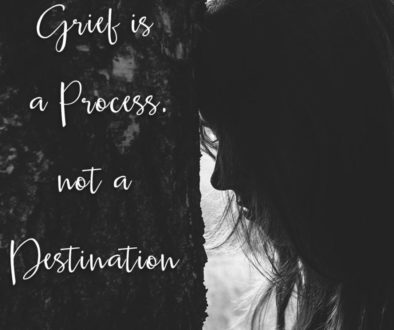Success Tips for Setting Up Play Dates
 Play Dates for Kids With Autism + Other Special Needs
Play Dates for Kids With Autism + Other Special Needs
It’s hard enough to get a play date set up for a typical developing kid, but if you throw in the stuff that comes with having autism and other mental health issues, then it can be down right impossible. But, with some perserverence and a wider view of the world, then you can do it.
Here are some success tips for setting up play dates.
1. A Team Effort
For the typically developing very young children, like preschoolers and toddlers, playdates are more about the parents getting together. And kids this age are not too picky about whom they play with. In fact, when they are this young, they don’t necessarily play together; they play in the same room, but they may not interact much. This is much the same for kids with autism, however, their age might be much older while they still display this disconnected play behavior.
For older kids, such as kindergarteners, some preschoolers, and certainly elementary school kids, the personality of their friends makes a difference. Let your child choose his own playmates, as long as it’s not a “friend” who is dangerous or mean to your child (as a parent, you do have a say about your child’s safety even if you let him choose his friends).
Depending on the level of ability in your child and her friend, they may just want to play video games or watch youtube together. My suggestion is a trip to the park or indoor interactive museum with their friends and parents. When it comes to kids with behavior and sensory issues, or anxiety and ADHD, it takes a team of parents to manage one kid alone. If you put several together, that effort can be doubled. On the other hand, when your kid has someone else they can relate to on some level, they may exhibit less troublesome behaviors for a time.
2. Even Numbers
Three friends playing together can be awkward. Try to schedule 2 or 4 kids together rather than 3 or 5. If you have a household with multiple kids of different ages, see if you can get a playdate for the older/younger sibling(s) as well. Or if that’s not feasible, see if you can set up something for the other sibling to do. Younger siblings in particular can “tag along” and get in the way, and make that dreaded “third party” in the playdate; so see if you can get a playdate for the little one as well or even set up a movie for her to watch.
What I’ve typically seen happen with my two girls is that my older more typically developing daughter encourages her younger sister with autism to try things. My older daughter also includes her own friends and expects them to be just as accepting of her sister’s quirks as she is.
3. Welcome the Parent(s)
When you are hosting the playdate and the child is being dropped off, invite the parent(s) in to your home. This is respectful of the other parent’s sensibilities – he or she probably wants to know what your house is like and will want to know what kind of home their child is in. Inviting the other parent on a “tour” of your home is just good form, so to speak.
While I won’t be hosting any in-home playdates anytime soon, if my girls were to go to someone else’s home, I would expect to be invited in and see where my daughter would be hanging out for the afternoon. This also give me (the parents) an opportunity to scope out any potential sensory triggers like smelly candles, animals, or noises and lights. For a child with separation anxiety it would be a transition time for the parent to show through body language that it’s safe for the child to stay and play.
4. Know Your Guest
Make sure you find out if the kids you’re having over have any food allergies, medical conditions, or any special issues that you need to know about. For instance, my youngest daughter also has type 2 diabetes. While it’s not likely that she would have a problem because we have the diabetes managed through food, it’s something to let the host parents know so that they can call even if they aren’t comfortable dealing with giving shots or knowing when to test for blood sugars.
5. Short and Sweet
Playdates should have a definite end time, when the parent will come pick up the child. Picking up your child or having a visitor picked up “whenever” doesn’t work too well. The potential is there for an extended stay that may mess up schedules or just be awkward.
For many of our kids with autism, a schedule is what drives them and keeps their behaviors in check. Ask the parents to remind the kids on a regular basis like every 30 minutes, and then every 10 in the last half hour of the date that the time is nearly up.
Two hours is usually fine, especially for young kids. When in doubt, err on the side of shorter – you can always make another playdate, but having one drag on for too long makes for a bad experience that no one wants to repeat. If your kids are visually stimulated, take your visual timer so your child can “see” how long they have left.
I’d love to hear your own play date tips for kids with or without Autism + special needs.




Carolyn Coleman-Grady
08/21/2014 @ 8:54 PM
Very nice. The tips are useful. Parents with special needs children need resourceful information. Liked and shared for you.
Carolyn Coleman-Grady recently posted…Why Dance Lessons are Good for your Heart
TimothyTorrents
08/21/2014 @ 11:55 AM
I don’t have a child and don’t plan on creating one anytime soon but thanks for this anyways, haha.
TimothyTorrents recently posted…Case Study: The One Week Middleman Project Part 2: Progress and Ideas
crystal touchton
08/21/2014 @ 7:52 AM
These are some excellent tips on playdates. When my oldest child was young we didn’t leave him with others, but these were the types of things we had to do when we visited family or friends with him. He has severe ADHD and has to know when something will end, and reminders were always used when he was younger.
crystal touchton recently posted…Best Kids Adirondack Chairs